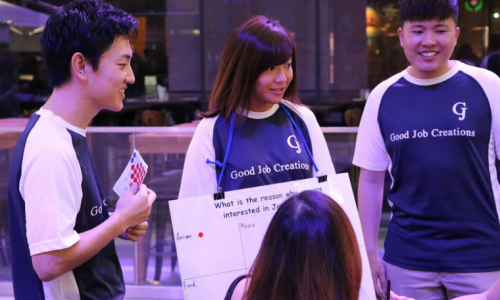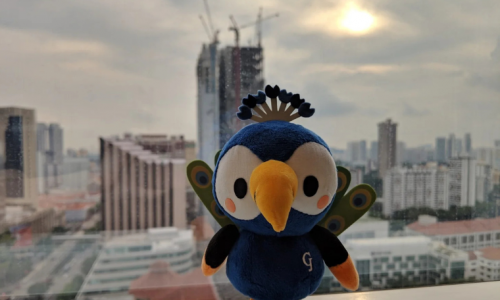Hello! I am Furubayashi from Good Job Creations.
In the last article, we discussed Singapore’s day-in-day-out way of life as a unique country. Today’s article stems from my experience with job hunting and supporting others during career transitions. Many people might not relate to this because they haven’t experienced or considered it before. As a result, they may find themselves unprepared when such opportunities arise unexpectedly.
You will find that some points in this article are repetitive and may align with what other professionals have always said about interviews. However, I hope you find them incredibly fresh and original.
Frequently Asked Interview Questions You Need to Know!
You can pass your interview if you are able to answer these questions with ease. So, let’s get started right away!
1. Self-Introduction (Japanese/English)
Just like in Japanese interviews, briefly explain your profile, including your name, background, and reasons for applying. Keep it concise, and only detail your work history when asked.
Some might say, “After graduating from high school, I moved to Tokyo, and I left my first company because…” but only go into such details if prompted by the interviewer.
2. Motivation for Applying to This Company and Position (Japanese/English)
Research the company’s website beforehand to identify what interests or resonates with you. Compare your experience with the position to find similarities that motivate you to apply. Think about what you can offer that will convince the interviewer to give you the job.
3. Please Tell Us Your Strengths and Weaknesses (Japanese/English)
This is a common question! Being too assertive might be frowned upon in Japanese interviews. However, asserting yourself clearly is important if you plan to work abroad. Analyse your personality and skills before applying so you can confidently discuss your strengths and weaknesses.
4. Please Tell Us About Your Work Experiences and the Reason for Leaving Your Previous Company (Japanese/English)
Most people leave jobs for various reasons. Being honest in an interview is crucial without giving a negative impression. Use conversational techniques to present your reasons positively.
Avoid Negative Reasons:
- The work is hard
- There’s too much overtime
- I didn’t get along with my colleagues
- It’s not what I want to do
Reframe with Positive Language:
- The work was rewarding
- While team building was challenging, I discovered the career path I want to pursue in the long term.
Always aim to conclude on a positive note!
5. Please Tell Us Your Thoughts About Your Future Career (Japanese/English)
This is a crucial question! Sometimes, you will be asked about your mid- and long-term career plans to assess whether you intend to work long-term. They will also want to know if there is a gap between the work you want to do and the work they offer.
Many companies prefer to retain valued employees once hired. Have a clear plan that extends the career and skills you can gain from the position you are currently interviewing for. Long-term plans don’t have to be directly linked to your current job; as long as there is a clear connection between them, it’s acceptable.
6. What is the Expected Term of Employment? (Japanese/English)
This is a frequently asked question, especially for spouses of expatriates in Singapore or those working as local hires.
If You Are the Spouse of a Foreign Resident
The question concerns your intention for long-term employment. Predicting the term of employment if you are bringing your spouse may be challenging, but you should check with your spouse and provide the term of employment of your predecessor and the company’s stated term as a reference.
Spouse visa holders with non-terminus spouses often reassure companies that they don’t have to worry about the spouse returning home.
If You Are Hired Locally
“I came here because I wanted to work for a year!” or “I haven’t decided anything yet” won’t convey your enthusiasm for the position or the company. It’s better to express your desire to contribute over several years or even long term.
For example, “I would like to first get used to the environment for at least three years” or “At this stage, I have not set a specific period, but I would like to work here for the long term.“
7. Please Tell Us Your Desired Salary and Earliest Start Date (Japanese/English)
In Singapore, most positions are for mid-career hires, so the ability to contribute immediately is crucial. While skills are necessary, the speed at which you can start working is also a key factor. Due to Singapore’s small size, companies often need help securing good human resources and prefer candidates who can start quickly after receiving a job offer.
When a company needs a quick replacement due to a sudden resignation, they are more likely to hire someone who can join promptly. Generally, you have about one month to obtain a visa and start working. During this time, you need to give notice to your previous employer. If this period extends to two or three months, or if you want to start in six months, you may not be suited for an immediate position.
8. What Do You Focus On in Your Job Search? (Japanese/English)
There are many factors to consider: salary, work environment, colleagues, skills! While we’ve asked about your reasons for changing jobs and motivations for applying, this question explores what else you value when searching for a new job.
Your answer is important from a hiring manager’s perspective as it helps determine whether the company’s environment matches what you are looking for. This insight is crucial for highly motivated candidates.
9. What Is the Most Memorable Job/Accomplishment You Have Had So Far? (Japanese/English)
This question aims to understand what you are passionate about and how you approach your daily challenges with a sense of purpose, even if your job is different. It can be tough to answer on the spot, so always strive to approach your daily work intentionally to avoid it becoming a chore.
10. Do You Have Any Questions? (Japanese/English)
It’s your chance to show your interest and enthusiasm for the company you’re applying to. Do thorough research beforehand and prepare at least two or three insightful questions. This can help you connect with the interviewer and leave a strong final impression. Stay engaged until the end and maintain a conversational tone with the interviewer.
Conclusion
Today, we’ve got some interview tips that will genuinely help you!
While you shouldn’t rigidly script your answers for an interview, preparing in advance allows you to reflect on your work history and conduct self-analysis.
Opportunities to work abroad aren’t infinite—when you get an interview, carefully consider each job offer. Preparing well will help you communicate effectively!
Interested in working overseas? Wondering where to start? We’re here to help with even the smallest questions. Feel free to reach out!
We also welcome job change consultations from those currently working in Singapore. Visit the Good Job Creations website for job hunting, career changes, and career advice in Singapore.





